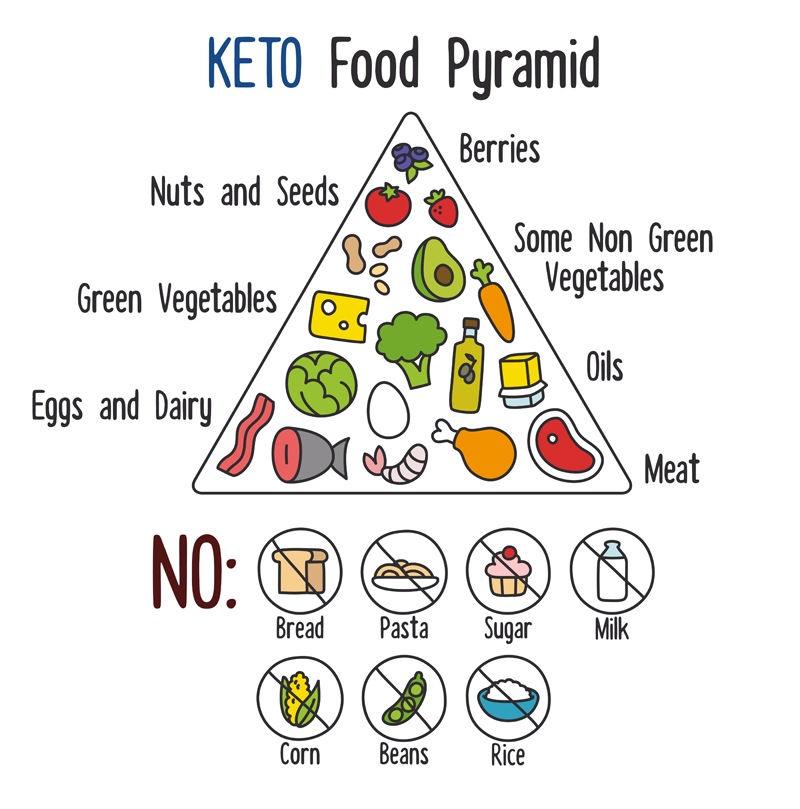Shop At Haya: Your Ultimate Shopping Guide
Discover the best shopping tips, trends, and deals for a smarter buying experience.
The Great Carb Comeback: A Diet for the Bold
Discover the thrilling return of carbs! Unleash your bold side with our game-changing diet tips and tasty recipes that defy the ordinary.
Understanding the Science Behind Carbs: Why They're Making a Comeback
The perception of carbohydrates has undergone a significant transformation in recent years. Once vilified as the main culprit behind weight gain and health issues, carbs are now being recognized for their essential role in a balanced diet. This change is largely due to an increased understanding of the different types of carbohydrates. Unlike the simple sugars found in candy and soda, complex carbohydrates, such as whole grains, legumes, and vegetables, provide vital nutrients and fiber that contribute to overall health. As more people educate themselves about nutritional science, they are reevaluating the role of carbs in their meals and embracing them as a crucial energy source.
The comeback of carbs can also be attributed to the rise of dietary patterns that emphasize whole foods and sustainability. Diets like the Mediterranean and plant-based eating promote the consumption of healthy carbohydrates that are rich in fiber, vitamins, and minerals. Research has shown that integrating these beneficial carbs can improve gut health, stabilize blood sugar levels, and enhance athletic performance. Furthermore, as we continue to learn about the negative effects of overly restrictive diets, many are turning back to carbohydrates not just for the sake of nutrition, but for enjoyment and satiety in their meals.

Are Carbs Really the Enemy? Debunking Common Myths
The perception that carbs are the enemy often stems from popular diet trends that demonize certain food groups. However, carbohydrates are the body's primary source of energy, and eliminating them completely can lead to fatigue and nutrient deficiencies. It's crucial to understand that not all carbs are created equal. Complex carbohydrates, such as whole grains, fruits, and vegetables, provide essential nutrients and fiber that can support a healthy digestive system, while sugar-laden processed foods may contribute to weight gain and health issues when consumed in excess. Instead of fearing carbs, focusing on the quality and quantity of carb intake is a more sustainable approach to nutrition.
Another common myth is the idea that consuming carbohydrates at night leads to weight gain. This misconception ignores the fact that weight management revolves around the total caloric intake and expenditure over time, not just the timing of meals. Studies have shown that people who eat a balanced diet, inclusive of carbs, can still achieve their fitness goals regardless of meal timing. It's important to prioritize a well-rounded diet rich in nutrient-dense carbohydrates and to maintain an active lifestyle for overall health.
The Bold Guide to Carb Cycling: Unlocking Energy and Weight Loss
Carb cycling is a strategic eating pattern that alternates between high-carb and low-carb intake to optimize energy levels and promote weight loss. By understanding how this approach works, individuals can effectively fuel their workouts and enhance fat burning while enjoying the flexibility of varying their carb consumption. Studies suggest that carb cycling not only helps in maintaining muscle mass but also boosts overall metabolic efficiency. By planning your meals around your training schedule, you can harness the benefits of carb cycling to energize your workouts and shed those extra pounds.
To successfully implement a carb cycling regimen, follow these essential steps:
- Determine Your Goals: Are you aiming for weight loss, muscle gain, or improved athletic performance? This will shape your cycling plan.
- Plan Your Carbs: Typically, you'll have high-carb days scheduled around intense training sessions and low-carb days for rest or light activity.
- Monitor Your Progress: Keep track of your weight, energy levels, and body composition to adjust your cycling plan as needed.